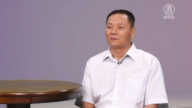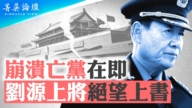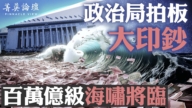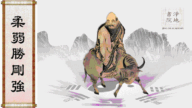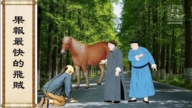【新唐人2009年1月8日讯】 【细语人生】天外有天(上集)-记武术大师李有甫先生的人生传奇(上集)
风靡一时的好莱坞大片《熊猫功夫》令更多的西方人对中国功夫着迷,而新唐人电
视台首届全球华人武术大赛的成功举办更把武术这一中国古老的健身防身之术推向
世界舞台。那急急如流星缓缓似祥云的招招式式,不仅令门外汉惊叹不已,也令许
多武林之人感到学无止境。然而俗话说,台上一分钟,台下十年功。一个武术大家
的出现除了其先天的素质外,还得能吃大苦,还得有很高的道德标准。
如果我们把历史倒回去,当您碰到一个因打饥荒而吃不饱饭而面黄肌瘦的十来岁的
农村孩子,您会想到他会在几十年后成为闻名世界的集中医和武术于一身的教授级
武林高手吗?
在回忆起自己成才之路时,我们这位传奇人物非常感慨地说:"老师说他一直在观察
我。一般来学武的,学了3年、1年或几个月就走了,可我跟着他坚持了10年。10 年
中我一直很尊重老师,练得也很刻苦,无论天寒地冻还是烈日炎炎,我每天一大早
风雨无阻的从大老远赶来学武,尽管几年里老师只教了我一套拳法,我就默默地在
那练,从不打扰他。"
欲知他是怎么得道成才的,欲知他是如何身获绝技的,敬请收看《细语人生》节目
天外有天—记武术大师李先生的人生传奇。
细语人生】天外有天-记武术大师李有甫先生的人生传奇(上集)
[Whispers of Life ] The Legend of Kung Fu Master Li Youfu (part 1)
亲爱的观众朋友大家好,中国武术源远流长,南拳北腿,少林武当。
Dear viewers, the Chinese martial arts go back to ancient times, such as the renowned southern fists and northern legs martial arts division, which are martial arts schools that originated in the Shaolin Monastery and Wudang Mountain, and belong to the Kung Fu martial arts.
中国的功夫的精髓和意境是不练武的人很难体会到的。正是“台上一分钟,台下十年功”,讲出了学武练功之人的艰辛。
The essence and conception of Chinese Kung Fu can’t be easily understood by martial arts non-practitioners. “Behind one minute on stage is ten years of practice” clearly delineates the hardship endured by the practitioners.
今天我们给您介绍的就是一位武林界的高人,是武术界和气功界的传奇人物,他是中国少有的既有武术功底又有理论研究的大师级人物,后来呢他更成为中国中医和气功领域中的知名人物,他呢就是李有甫先生。
Today, we have with us a Kung Fu master, a celebrity in martial arts and qigong circles. He not only has remarkable martial arts skills, but has also made great effort with theoretical studies into the subject matter. He also is a well-known expert in the fields of Chinese medicine. He is Mr. Li Youfu.
李有甫先生从小习武,文革期间,还是中学生的他,就偷偷拜师学艺。在这场历时罕见的文化浩劫中,勤学苦练,打下了坚实的基础。在名师的指点下,李有甫先生先后学习了多种拳术和兵器。他曾多次在全国武术大赛中获得了一等奖。1984年,作为山西大学武术研究生,成为中国历史上首批获得硕士学位的武术大师
Mr. Li started to practice martial arts at an early age. During the Cultural Revolution, while still in secondary school, Li secretly looked for a master to learn martial arts. During this rarely experienced cultural catastrophe, Li studied and practiced diligently, and laid a solid foundation in the area of his interests. Under the guidance of great teachers, Li learned about different types of Chinese boxing and about martial arts weapons. He had won first prize in many national martial arts competitions. In 1984, as a martial arts graduate student from the Shanxi University, Li was among the first in China to obtain a Masters Degree in martial arts.
宇欣:李有甫先生您好,在行内的人都知道有您这样一位武术大师。那您这次来参加新唐人电视台举办的全世界武术比赛,作为评委会主席的您感觉怎么样?
Yu Xin: Hello Mr. Li Youfu. You are well known in martial arts circles. How does it make you feel being the chair of the panel of judges, selected for the International Chinese Traditional Martial Arts Competition organized by the New Tang Dynasty Television (NTDTV)?
李有甫:不要称大师了,我想这些方面我只是有体会,我感到中华传统武术博大精深,它有非常好的内涵,在中国大陆我那么多年,进行过若干次中国的武术的比赛。但是进行一个全世界的中华传统武术比赛,这一般人办不到的。而且正真的传统,那么新唐人它的宗旨就是,规正中华神传文化,发扬中华传统武术和武德。从 这个角度出发它说首先抓住了武德是武术的根本。没有武德,武术也提高不了,真的是提高不了。今天做出了之后,我感到很成功,而且大家都非常高兴。
Li Youfu: Please, do not call me Master. I think I merely have some experience in this discipline. I think that traditional Chinese martial art is very profound and is highly significant. I lived in Mainland China for many years and I was involved in several martial arts tournaments. In my believe, a completely new global Chinese traditional martial arts competition is not something an ordinary person can organize, as it is based on the true tradition. The competition aims to promote Chinese culture and display true martial art values to the world. It clearly understood that moral is at the fundament of martial arts. It is without doubt true that without martial arts morals, ones skills will not improve. Today, as the competition is over, I feel it is a great success, and everyone is very excited.
宇欣:对,我看那个场面是非常的宏大。同时呢我们也能够请到您上我们的节目,请您来谈一谈您个人的这个武术生涯。
Yu: Yes, I saw that it was a truly grand occasion. It is out pleasure to have you here with us and have you share your personal experience with martial arts.
李有甫:谢谢!
Li: Thank you!
宇欣:听说您在一生当中练过很多的门派,刀、枪、剑术,还有八卦掌、太极拳很多很多,您自己向观众朋友先介绍一下。
Yu: I heard that you have practiced in many schools of martial arts, such as knife, spear, and swords, Eight Trigrams Palm, and Tai Chi Chuan. Could you tell us about it?
李有甫:好,武术就是内家拳、外家拳,这两个是主要的,那器械有各种器械,十八般兵器。首先我练的是外家拳,外家拳就是像查拳,少林拳等等。
Li: Sure. Martial Arts is composed of two major forms, the internal and external martial art. Then there are a variety of martial arts weapons, actually eighteen kinds of weapons. I first practiced external martial art, such as Cha Chuan and Shaolin Chuan..
宇欣:看报导介绍您的武术绝技之一还有鞭杆,就是在1982年全国民族体育比赛当中,您以一根鞭杆使得满堂震惊,获得满堂喝采,得了那次全国比赛的冠军。那鞭杆是怎样的武术?
Yu: I read reports that you are an expert in whip rod martial art. In the 1982 National Sports Competition, you amazed the audience with your whip rod skills, and won the championship. What kind of martial art is the whip rod?
李有甫:鞭杆是一个小棍,大拇指那么粗,细的一端有大拇指粗,粗的一端就像一棵小树的根部比较粗一点,大概有三尺三左右那么长,就是人站立的话可以到达自己的胳膊肘那么高,这个棍包括刀枪棍剑的动作。
Li: Whip rod is a piece of rod about a thumb thick. The thinner end is as thick as a thumb, and the thicker end is a bit thicker than the root of a small tree. It is about 1.3 meter long, which is about as tall as the elbow height of a standing person. Whip rod actions are similar to knife, spear, stick and sword actions.
起源据说是明朝末年,有一员大将在抵抗清兵的时候,后来由于明朝灭亡了,他就隐居到五台山到一个庙里头,好像叫龙泉寺,到那个庙里他就当和尚,他为了把这个武术继承下来,当时出家人不能带刀剑枪,不能拿带这些东西,他可以练棍。
It is said to have originated in the late Ming Dynasty. A general fought against the Qing soldiers. After the demise of Ming, he lived in seclusion in a temple on Wutai Mountain, probably called Longquan Temple at the time and became a monk. At the time, monks were not allowed to carry a knife, sword or spear. But he wanted to pass down his martial art skills, so he used a stick.
宇欣:不杀生。
Yu: No killing.
李有甫:他制止暴力,不是要把人杀了。他拿棍把你制住了,把你兵器打掉了,或者叫你拿下。
Li: He stopped violence. It is not used to kill people, he used the stick to stop you, knock your weapon down or force you to put down your weapon.
宇欣:是一种自卫防范的武器。
Yu: it is a weapon for self-defense.
李有甫:对,武德就在这里。他首先教一些人,后来教小和尚,小和尚练得好,就把这个全记上了,这个小和尚叫教伦和尚,教伦和尚练得很好,教伦和尚教了两个人,一个是任继,一个叫李春芳,他们都很出名。后来任继老先生就教了张含之。
Li: Yes, this is the martial arts moral behavior. He first taught some people and then young monks. Young monks practiced diligently and recorded all the teachings. A monk called Jiaolun practiced very well and taught two more people. One was Ren Ji and the other Li Chunfang. They both became famous. Then, Ren Ji taught Zhang Hanzhi.
宇欣:武术界每一项武器都有一个故事,您会很多武术不能一一的讲,一个鞭杆就有这
么一段故事,那您的传授老师是谁呢?
Yu: There is a story behind every weapon used in martial arts. You know many weapons, but cannot talk about them all here. The whip rod also has such a story behind it, who was your teacher?
李有甫:他就是山西大学的武术教授也是体育系主任陈盛甫先生,他到山西当武术协会主席,他是山东人,他在调查武术当中发现鞭杆很独特,但是这个人他不公开传播,他是比较轻易不传人吧,陈盛甫先生他后来就想办法跟他接近,张含之先生发现他人也很好,就可以教,就把全部鞭杆的武功技术方法全教会了陈盛甫老先生。
Li: Mr. Chen Shengfu, the Martial Arts Professor and the head of the sports department at Shanxi University,. He went to Shanxi to be the chairman of the Martial Arts Association. He came originally from Shandong Province. When doing research in martial arts, he found the whip rod to be very unique. Alas, the whip rod master Zhang Hanzhi did not teach in the public or choose student casually. Therefore, Mr. Chen contacted him. Mr. Zhang found Chen to be a good person and can be taught, so he taught Chen all his whip rod methods.
他练了以后他后来得了在华北地区一个民族体育会上,他表演之后获得大家共同的称赞,都觉得太好了,他岁数大了以后又得了全国的冠军。我在文革当中后来跟他有偶然的机会能认识他,拜他为师之后我就学这个鞭杆。
After completing his training, Mr. Chen demonstrated his whip rod skills during a sports conference in Northern China. He won praise from the audience but did not win the national championship until older. During the Cultural Revolution, I met him by chance. I looked up to him as my teacher and learned my whip rod skills from him.
宇欣:据说您这一生当中有两位名师传教给您,这是其中一位陈老师,您能不能在简单介绍一下您是怎么走上习武这条路的?
Yu: I heard you had two renowned teachers teaching you Kung Fu. Master Chen is one of them. Can you briefly talk about how you decided to go into martial arts?
李有甫:当初走上习武这条路是由于当时我在乡下,在河北省北京东部的一个乡下,十几岁的时候正赶上三年大饥荒,就饿死很多人,每天只喝一碗粥维持生命。
Li: I chose to learn martial arts because at the time I was in the countryside in Hebei Province, East of Beijing. As a teenager I lived during the Great Famine. Many people starved to death. We had only one bowl of Chinese rice gruel a day to keep us alive.
宇欣:那是在什么时候?
Yu: When was that?
李有甫:59年到60年,58年以后,58年是大跃进,大家吃大锅饭,到59年只能喝大锅粥了。大家都集中到生产队去领一碗粥。
Li: From 1959 to 1960, after 1958. 1958 was the Great Leap Forward, people had to eat in the “big pot system”. By 1959, we were only given Chinese rice gruel. People were arranged in production teams and each person received this bowl of food.
宇欣:是怎样的大锅饭呢?
Yu: What is the “big pot system”?
李有甫:就是把每家每户的锅都砸了,炼铁炼钢了,把菜刀也拿走了,没有菜刀没有锅不能做饭了。
Li: They smashed the pots in every household and took them to make iron and steel. They even took the kitchen knives away. Without the kitchen knife and pots, we could no longer cook.
宇欣:家里什么锅碗瓢盆都没有了?所以大家都要去吃那个大锅饭。
Yu: So no pots or pans were left at home? So everybody had to eat in the “big pot system”?
李有甫:它说共产主义了,你们来这里我们集体吃饭,结果到那里只能领一碗粥喝。
那个粥还很稀,就是水啊!
Li: It was said to be communism, people all came together to eat as a group. But when we got there, each person could only get one bowl food. The gruel congee was so thin that we should just call it water!
宇欣:一日三餐都去吃大锅饭
Yu Xin: Everyone had three meals a day with everyone else.
李有甫:对,根本不是粮食,很难讲是用什么东西做的。那饿的没办法啦,我就看武侠小说,看武侠小说就看的很热闹呀,武侠英雄啊,我非常羡幕,就忘了饿了。而且也产生了要行侠仗义,要练武,要成为侠客或者剑客这个想法。
Youfu Li: Exactly. No one could eat it. It’s hard to say what the “food” was made of. I was starving, so I read martial arts novels and hoped I could become one of the heroes in the stories. This way, I forgot about hunger and wanted to practice martial arts and be good at playing knives or swords.
我要是练好了,我看当时乡下共产党的干部欺压百姓,说不给谁吃饭就不给吃你这碗粥了,就把你饿死了。
If I made it, I would be able to punish those communist leaders who oppressed the general public. They could make anyone starve to death by not giving you watery rice.
我当时认识一个麻子筷子,就是在乡下生产队里有个很小的个子,满脸黑痳子的人,他是一个共产党员,他很坏啊,他说不给谁吃饭,他一个筷子就勾你名字下头的格,你今天的饭就等于领了,就不给你吃了,他想这样对待谁都可。
I knew a communist, nicknamed “Spot Chopstick,” from a rural production team. He was very short, with many spots all over his face. He was very evil. He didn’t give you food by crossing out your name with a chopstick, as if you had already taken food. He could do this to anyone.
宇欣:连粥也喝不上了。
Yu Xin: Not even watery rice.
李有甫:真的饿死很多人,我亲眼看到,饿死在路边的多了。我就想练武术来教训他。
Youfu Li: I witnessed many people dying from malnutrition. It was so real. Many died on the sidewalk, so I wanted to practice martial arts to punish him.
宇欣:后来说有这个愿望了,怎样找到启蒙老师呢?
Yu Xin: You had a wish. How did you find the first teacher?
李有甫:对,我的一个启蒙老师是我初中同学的父亲,他也姓陈,这个同学练武,我问说跟谁练啊?他说他父亲练的非常好,过去也是飞檐走壁的。我就跟他拜兄弟,跟他拜兄弟,那当然他父亲看我们俩都一样,就教我们。
Youfu Li: My first teacher, Chen, was the father of my secondary school classmate. My classmate practiced martial arts and told me his dad was very good at it, able to fly above houses and walk on walls. Then, we became brothers and his dad treated us the same way and taught both of us.
当时教的是查拳那一门的盘腿,中国式摔跤,这么就开始练开了。后来我到了山西就再另找老师了。
At that time, he taught us leg crossing of Cha Fist Fight and Chinese wrestling. This is how I began to practice martial arts. After that, I went to Shanxi to learn from another Mr. Chen.
宇欣:这个麻子筷子后来有没有挨打?
Yu Xin: Was the “Spot Chopstick” beaten up?
李有甫:没有挨打,但是他遭到了恶报。我练武老师讲说重武德不要打人,我也没有去教训他,但是他后来年纪还不大就被砸死了,他去挖防空洞,防空洞倒塌,他就被砸死在里边。
Youfu Li: My teachers told me to have high moral standards, not to be involved in fights, so I didn’t beat him. But still, he was severely punished and died young while digging air-raid shelters. The shelter collapsed and he died inside.
很多人哪没有人去救他,因为周围的人都知道他太坏了,就听见他哀嚎,在里面喊救命也没有人去,他也受到了恶报。所以说我们讲武德的人用不着去打他。
No one tried to rescue him, as he was evil, although he was screaming and crying for help. He received a harsh punishment, so martial arts practitioners did not need to hit him.
宇欣:您的故事当中有这么一段记载说您初学武功就救了同学这么一段英勇善战的故事。
Yu Xin: One of your stories was about rescuing a classmate, like a hero, when you were a fledgling in martial arts.
李有甫:这也是逼出来的,当时文革刚开始,我们有些同学就去另外一个学校玩了,去玩的时候被那些武斗队的人包围在里边打,什么原因我也不太清楚,后来有个同学就找我了,说我们同学在那边被围住在打他们,说你去帮他们救救他们呗!
Youfu Li: I had no choice. When the Cultural Revolution just started, some of my classmates went to play at another school and were surrounded and beaten by some bullies. I still don’t know why. A classmate looked for me and asked me to save their lives.
我就一个人,人家都有枪啊,但我想同学挨打,我得帮帮忙去救救他们,我就跑去了,我一看这么多人,几十个人在围着他们打,往头上脸上乱打。
I thought I must help rescuing them though they all had guns and I was alone. Dozens of them surrounded my classmates, hitting their heads and faces like crazy.
我就说你们不要打人,他们就朝着我来了,几个人围上来就要打,当时我才20岁,血气方刚。我也不管了就把武功用出来就踢了,他们拿出枪来我也踢把人也踢倒了,这个时候,因为打我了,围上来打了嘛,我就跑就躲。
I said, “You should not knock them down,” so they walked towards me, and were about to fight with me. At that time, I was only 20 and not afraid of anything. I used my martial arts skills and kicked them. Some of them tried to use their guns and I knocked them down. Then, all of them came to fight with me and I ran away.
这时候上来一个,我老师还是有好的教育,说你不要伤人,他拳打过来,我一拦就拳搁在他脸上没下手,他就把我松开了,没抓住我,我就跑了,要不然他们都有枪,他们后来朝我开枪了,没打到我,我就翻墙跑了,就是这么个小故事。
My teacher educated me well, asking me not to hurt others. One guy came up to punch me; I pushed his fist away and put my fist in his face, but did not hit him. Then, he let me off. They all had guns and fired at me, but did not hit me. I ran over a wall and left.
宇欣:武功终于派上用场了,在您人生经历当中,前面我们提到,教您武功的两位老师都是武术名家。
Yu Xin: Finally, martial arts came in handy. We mentioned earlier that two of your teachers were both martial arts experts.
李有甫:头一位是陈盛甫
Youfu Li: The first was Shengfu Chen.
宇欣:就是教鞭杆的老师,另一位是?
Yu Xin: The one that taught you whipping stick. The second was…?
李有甫:陈济生老师
Youfu Li: Master Jisheng Chen
宇欣:什么时候先后拜这两位老师为师呢
Yu Xin: When did you start learning from them?
李有甫:我先说头一个,第一个就是在文革的时候,我不是喜欢练武术嘛,跟同学一起练,跟他们学习,后来山西大学有一位当时的党委书记的儿子,他也在练武术。
Youfu Li: I met the first during the Cultural Revolution. At that time, I practiced martial arts with classmates. I learned from them. The son of a Communist Party secretary at Shanxi University also practiced.
我不知道他是谁,他爸爸也被关起来了没有自由,因为文革要整一些当头的,校长、书记、系主任的,他自己在那边练拳。
I didn’t know who he was. During the Cultural Revolution, some leaders, principals, secretaries, and deans suffered. And, his father lost his freedom and was imprisoned.
我说你跟谁学?他说我跟山西大学武术教授陈盛甫学的。我说这么好,我能不能跟他学,你介绍一下,他说可以啊。
I asked for the name of his teacher. He said he was with the Kung Fu Professor, Shengfu Chen, at Shanxi University. I responded that this was awesome and asked if I could learn from him and if he could introduce me to him. He agreed.
他就领到哪里去呢?连他父亲那些人哪,带那些什么所谓系主任、教授、学术权威,在文革当中把他们叫做牛鬼蛇神,给关在所说的牛棚,就是说他们在那个房间里,让他们都住到那里去。
During the Cultural Revolution, many people such as deans, professors, and academic experts, including his dad, were nicknamed “Ghosts of Cattle and Gods of Snake”. And, all of them were locked in a room called “Shelter for Cattle”.
宇欣:那牛棚不是说跟牛住在一起?
Yu Xin: To live with cattle?
李有甫:不是跟牛住在一起。
Youfu Li: There were no cattle.
宇欣:没有牛棚。
Yu Xin: No “Shelter for Cattle”?
李有甫:所谓大家说横扫一切牛鬼蛇神这文革的话就是把那些有问题的,它们要整的人其实都是好人,把他们叫做牛鬼蛇神。
Youfu Li: The Cultural Revolution wanted to torture people with “problems” and called them “Ghosts of Cattle and Gods of Snake”. Actually, all of them were good people.
宇欣:就是把这些好人通称为牛鬼蛇神。
Yu Xin: The good people were nicknamed.
李有甫:把他们关起来之后没有自由了,不能随便出入,大家把这个叫牛棚,是这么来的。所以把他们关起来,他就把我领到那儿去,那都是有人监督的,但是我去见他也没什么,我是小孩子,我当时才18岁。
Li Fu: They lost their freedom. That’s why the room was called “Shelter for Cattle”. The son of a Communist Party secretary brought me there. And, the guard let me in because I was a kid of only 18 at that time.
宇欣:陈老师就关在牛棚里面。
Yu Xin: Master Chen was kept there.
李有甫:正在写检查呢。当时陈盛甫老师已经快七十岁,他的头发都白了,当时
经过介绍,我说我想跟您学武术、拜师父。
Youfu Li: He was writing a confession letter. At that time, he was almost 70 and his hair turned white. After being introduced, I said I hoped to learn martial arts from him.
宇欣:当时老师关在牛棚里,那时候也可以让他去教弟子可以吗?
Yu Xin: At that time, the teacher was locked up in the “Shelter for Cattle”, was he allowed to teach his disciples?
李有甫:他教一般都是早晨教,那些人都还没有起床
Youfu Li: He usually taught in the morning, and his jailers had not gotten up yet.
宇欣:就是批斗这些人还没来。
Yu Xin: Those would scold and beat him had not come yet.
李有甫:就批斗他的人都没起床。他说要坚持练习才行,练武术。他就跟我讲了一件和武术没关的东西,他就讲了孟子的话:“天之降大任于斯人也,必先苦其心志,劳其筋骨,空乏其身”等等,他讲这些我说这??
Youfu Li: Exactly. He said he must keep practicing martial arts. Then, he told me something that had nothing to do with martial arts, words of Mencius, “God will ask this man to do something significant and challenging. Before that, God would make him suffer mentally and physically……" and so on.
宇欣:这都是一些做人的道理。
Yu Xin: These are some principles that one should follow in life.
李有甫:做人的道理。他让我练练我以前的东西。他说你这个方法不对,练武术要放松,你不要使劲用力、发力那个都不对的,教授的东西就是不一样。同时他开始教我长拳、小花拳。我这次还看到有人打,就说不错我练了以后有人学。后来就练了刀术、剑术、八卦掌还有鞭杆。
Youfu Li: Yes. He let me practice things that I used to do. He said my approach was wrong, and I should be relaxed when practicing martial arts, not using my energy. What he taught me was totally different. At the same time, he started teaching me Long Fist Fight and Little-flower Fist Fight. Also, I saw someone doing this. This is a good sign; someone learned it after I had practiced it. After that, I practiced the arts of knives and swords, Bagua Palm Fight, and whipping stick.
宇欣:我看您那个故事上面有说您那个十年好像才学了一套什么拳术。那老师教您什么?
Yu Xin: I read your story that says you only learned one type of fist fight during a period of ten years. What did he teach you?
李有甫:一开始十年就学一套小花拳。
Youfu Li: First, I learned one set of Little-flower Fist Fight for ten years.
宇欣:那为什么那么长时间?
Yu Xin: Why so long?
李有甫:当时别人来练几天,他都表扬说你进步很快都这样,我练了好多年,我是下苦功他也不表扬我。我说老师您给我看一看,他就看看说你这练的不行、那里不行,你这还得好好练,那里怎么练,他很认真的教。
Youfu Li: At that time, some disciples were practicing for a few days, and he praised all of them for their quick improvement.
I practice very hard for many years, and yet he did not praise me. I asked him if I was on the right track. He responded that I had a lot to improve and must work very hard. He taught with all his heart.
宇欣:他可能是那种高标准要求你。
Yu Xin: He probably wanted you to be very good.
李有甫:我想是吧!
Youfu Li: Maybe.
宇欣:像历史上很多修行的故事也是一样。那就是那师父看中那个徒弟他就对他越
严格。
Yu Xin: Like many self-cultivation stories in the past, the master would be stricter with the disciple whom he had picked.
李有甫:可能有这个因素。后来我就跟他练,一练就是十年。十年这一套拳我确实觉得练的提高的比较快。
Youfu Li: Perhaps. He then trained me for a decade and I improved a lot in this set of fist fight.
宇欣:就是十年练了一套。练了一套,后来那您那些功夫都是什么时候学的?
Yu Xin: Practicing one set for a decade. When did you learn other martial arts then?
李有甫:后来几年当中就的教功就很快了,因为我学的也快,他一看我下苦功,十年不间断,很少,他就把很多东西都教给我了。他这才敞开来教,你想学什么?他教我让我都感觉到这个老师怎么突然什么拳都教,你学什么他教你很快。
Youfu Li: Because I learned quickly and worked very hard for a decade almost without any breaks, he then taught me lots of things. He asked what I wanted to learn and taught me everything. I was surprised that he taught me all the fist-fights.
宇欣:那每天你比如说教你这么多,那你要每天练多长时间?是不是一定特别辛苦?
Yu Xin: He taught you so much every day. How many hours did you practice every day? Did you have to work extremely hard?
李有甫:早晨在他那练二个小时,回去之后再复习,该练一、二个小时吧!
Youfu Li: After his two-hour training in the morning, I came back to repeat his teaching for one or two hours!
宇欣:就说这个台上一分钟,台下十年功。
Yu Xin: To perform on stage for one minute, one has to practice for one decade, as the old saying goes.
李有甫:是那真的是不假。
Youfu Li: Absolutely.
宇欣:那非常非常的刻苦。就说在第一位这个名师的教导之下就学了这么多的功夫。
Yu Xin: Working very, very hard. You learned so much under the first teacher’s guidance.
李有甫:我主要是学的他的几个长拳、小花拳还有底功拳、刀、枪、剑、棍也练了一些,他重点是他教了我鞭杆。这个鞭杆就是后来在这个社会上的就流传开,大家都比较注重的一种兵器。
Youfu Li: Most of what I learned from him was a few sets of Long Fist Fight, Little-flower Fist Fight, Digong Fist Fight, knives, lances, swords, and sticks. He focused on teaching me whipping stick, which later became popular among the general public. Most people considered using a weapon as important.
宇欣:能承受多少看您的忍耐力,您就得到多少。这是其中的一位名师,第一位老师陈盛甫。第二位名师是什么时候拜他为师的呢?
Yu Xin: The more you can bear, the more you will get. Your first teacher is Shengfu Chen. When did you start with the second teacher?
李有甫:第二位是过了文化大革命。文革以后1980年,那时候有一个全国传统武术的表演大会。在山西太原。当时我在裁判竞赛组工作,我的老师他是做评委会主席,当时陈济生老师在文革以后他也有了自由了,他就到大会上去了,他去之后两个老先生他们是结拜兄弟,也是结拜兄弟,过去练武的人?
Youfu Li: That was after the Cultural Revolution. In 1980, there was a National Conference of Traditional Martial Arts in Taiyuan of Shanxi province. I worked in the jury department, and my teacher was the President of the jury. At that time, Jisheng Chen also regained freedom after the Cultural Revolution, so he went to the Conference. The two elderly men were brothers.
宇欣:武林高手。
Yu Xin: Martial arts experts.
李有甫:过去练武的人他们互相觉得都很投缘,都觉得对方功夫高、人也好,两个人就结拜兄弟了,桃园结义一样的。他们过去是结义的,这个陈济生老师他们一共有五个人结义,我这个陈盛甫老师是他的二哥,陈济生老师是老三,还有老大还有老四、老五,那几个都是冠军,山东省冠军,全国冠军、亚军都有,这都是旧中国那时候的事。
Youfu Li: In the past, if two martial arts practitioners had a lot in common, both felt the other was excellent in martial arts and was a nice person, they would become brothers for ever. Five of them became brothers for ever, my teacher, Shengfu Chen, was his second elder brother, Jisheng Chen was No. 3. All the rest had been champions years ago, such as champion in Shandong province, national champion, and runner-up.
宇欣:您也是很幸运的我觉得。
Yuxin: I think you are also very lucky.
李有甫:就是因为他们那些人跟陈济生老师比武的摸不着他,摸不着他都打不到他身上,都知道他真的有功夫,那些人都是有招有势的,那武术打起来擂台上能拿冠军的,那功夫很好的,打不着他,知道这个陈济生老师厉害。
Li Youpu: These people could not even touch Master Chen Jishen during a Wushu contest , nor were they able to hit his body. They were all aware that he had real martial arts skills. Those people all had their good martial arts movements, and they could win the championship if they participated in martial contests. They had good martial arts skills but they could not touch him. They all knew this Master Chen Jisheng was great.
宇欣:这非常厉害了。
Yuxin: That is very great.
李有甫:他太极拳很高。
Li Youpu: His Taiji was very high level.
宇欣:这个陈济生老师教您的是什么功夫?
Yuxin: What kind of Gongfu did Master Chen Jisheng teach you?
李有甫:他还没上来教我,是先陈盛甫老师跟他详细介绍,他跟他谈了二个小时,
他不教人的。他文革以后他不轻易教,他说现在的人怕他们去打架,你看他非常注
重武德的。
Li Youpu: He did not teach me yet. It is Master Chen Shengpu talked to him for two hours. He did not teach students. Ever since the Cultural Revolution, he did not casually teach students. He said he was afraid that nowadays they might use it to assault people. You see he paid close attention to the virtues of martial arts.
宇欣:师父找徒弟。
Yuxin: It is the Master who looks for his students.
李有甫:陈盛甫老师给他谈,谈的有二个小时就说我跟他这个认识的过程,因为十几年我怎么去学的,他的意思是说这个人我是经过考验的,就是说观察了那么多年觉得还是不错。
Li Youpu: Master Chen Shengpu talked to him about me for two hours and how over the dozen of years I learned from him. What he meant was that I had passed the test. That is to say after so many years observation, he thought that I was not bad.
宇欣:那他不是那种忍痛割爱把自己的高徒介绍给他。
Yuxin: Didn’t he think that he parted reluctantly with what he treasured and introduced his best student to him.
李有甫:他们没有那个观念,我就奇怪其他的师父都觉得我的徒弟成了别人的徒弟了,我培养了半天到人家那出名,他没有那个观念。
Li Youpu: They did not have that notion. I was curious for the other masters would feel that their student would later on would become someone else’s student after they had trained them for quite a while, but later on he became famous when he became someone else’ student. He did not have that notion.
他觉得你可以给他提高,他们对学生我这两个老师都是这样。他们对学生是说我把你培养出来让你提高是我的目的。所以真正的老师、师父都是这样子想法,我越来越感觉到。
He felt that you could improve. My two masters treated students the same way. In treating the students, they believed that it was my purpose to train you and improve you. So, for the genuine teacher and master, they are like this. I feel this way more and more often.
所以那个后来陈济生老师跟我讲说,你老师跟我详细说了你们的认识过程,这我才教你,我不是随便都教的。他教我太极拳,他那个太极拳我练过,跟那个陈盛甫老师跟别的老师我都练过好多种太极拳,练了十几年了,我也练了看起来还是不错的,跟他们比我也是不差的一个人,但是?
So later on Master Chen Jisheng told me, “Your teacher told me all about your marital arts training in detail. Then I decided to teach you. It is not that I accept a student casually."
He taught me Taiji. I learned his Taiji, I learned several different types of Taiji from Masters Chen Shengpu and others for over a dozen years. I practiced and looked not bad, and compared to them, I was not a bad one. But?
宇欣:所以他这个更高。
Yuxin: So his is even higher level.
李有甫:练的高。他那个太极拳我练了以后我感觉以前都没入门。
Li Youpu: He is very high level. After practicing his Taiji, I felt as if I had not even learned the rudiments of Taiji.
宇欣:他不同是怎么回事呢?
Yuxin: What made him so different?
李有甫:我练了以后身上感觉到,这个感觉非常强烈,练的也很好我感觉有能量。练完了身体很舒服,我说武术还有这个东西,同时开始跟他学太极拳,108式太极拳。
Li Youpu: After practicing it, physically I had a very strong feeling. After good practice, I felt strong energy. I felt very comfortable physically after practicing it. I said the martial arts could also give this. At the same time, I started to learn from him Taiji, the 108 forms of Taiji.
宇欣:他这个也是属于秘不外传的?
Yuxin: Was this also handed down as a closely guarded secret?
李有甫:他也适当的传,他这个看人了,他教人比较注重选德。还有八卦掌,后来学他的游身八卦,还有他的迷魂掌,对我他也是越来越公开越不保守了,他感觉到我这个人还可以教,所以我也很荣幸。这两个老师对我都是毫无保留。我很感谢。后来他越来越对培养我也更重视,他就教给我除了游身八卦、除了这个迷魂掌之外,他就教我点穴。我说点穴伤人我不太想学,他说很奇怪他说怎么这个东西你不学?别人是一辈子都想学这个。我说我想帮人,不想伤人。
Li Youpu: He handed it down in a proper way. He would choose students. He paid more attention to virtues in teaching students. Also there was the Eight Trigrams Palm. Later on I also learned from him Yousheng Eight Trigrams, and his maze palm. He was getting more and more open with me. He felt that he could still teach me. So I was also very lucky. These two masters taught me without reservation. I feel very grateful. Later on he trained me more and more, and I paid more attention. He taught me Yousheng Eight Trigrams, Maze Palm, he taught me how to touch the vital points. I replied that the touching of the vital points might hurt people, and I did not want to learn. He said that it was weird that how come you did not want to learn this? For the other students they wanted to learn this all their lives. I said I wanted to help people instead of hurting people.
宇欣:不想伤人。
Yuxin: Instead of hurting people.
李有甫:他就更愿意教我了,他说你是对的,他教了我点穴还教了解穴,我就用老师教的方法看人受伤了那里不能动了,我就用解穴的方法能救人。
Li Youpu: He was even more willing to teach me. He said you were right. He taught me how to touch the vital points and also how to undo the touching as well. I used the method of undoing the touching taught to me by the master to see if someone was injured and could not move, I would apply the method of undoing the touching to save them.
宇欣:可以救人。
Yuxin: So it can save people.
李有甫:以前我也学过一些点穴解穴,他的方法就更高一些,他也教我这个。
Li Youpu: I also had learned some ways of touching and undo the touching before he taught me. But his method was even high level.
宇欣:这次武术大赛没有机会看到您的表演也是很遗憾的一件事。还有您在习武的过程当中,有一件非常遗憾的事,就是您的一位老师临终的时候要把一些密传的东西传给您。
Yuxin: It regret to not see your performance at the Martial Arts Competition. Also when you were practicing the martial arts, there was one thing very regretful. That is one of your masters wanted to pass down something very secret to you before he died.
李有甫:有这个事,就是陈济生老师他临终的时候就要传一些密传的东西,托人打电话给我,我个人还是好办,但是当时我在山西大学工作上一个事情离不开,结果他去世的时候跟他最小的儿子讲,他不来的话这些东西就失传了。后来我听了很难过,我说老师对学生真是,我们过去都说师父师父??
Li Youpu: There was in deed such a thing. That is before Master Chen Jisheng died, he wanted to pass on some secrets. He asked people to call me. But, I could not go because of my job at Shanxi University. As a result, when he passed away, he told his youngest son, that if I couldn’t come, all these things would become lost. Later on when I heard about it, I was very sad.
宇欣:一日为师终身为父,真的是非常难过,也是很遗憾的事,就是他连自己的儿子都没有传,就想密传给你。
Yuxin: For someone to be your Master for one day, he would be the same as good as your father all your life. It is really a regretful thing. That is to say that he did not pass the secret to his son but instead he wanted to pass it to you.
李有甫:当时我听到的是这个情况,其它我就也不太清楚,当时我也很感动,也难过了一段时间,后来我经过再提高,再认识很多东西,我也很有收获,后来在练武当中也有种对修炼的追求,因为人不光是??,后来我也想有些人练武喜欢动手,把人推倒了制服了就觉得很高兴,觉得功夫就是这个。后来我发现并不是这个,人要修炼,我就一直在想这个问题。
Li Youpu: When I heard about this situation, I was not very clear about other things, I was very touched, and I felt sad for quite some time. Later, I improved. Then, I also pursued cultivation. After some time, I thought that some people would use force in doing martial arts. They wanted to control people. They felt that martial arts were just like that. Later on I discovered that it was not like this. Human beings need to cultivate. I have been thinking of this question.
宇欣:师傅找徒弟的时候,他也就是看你这个人品行道德,他才会传给你。以上呢就是李有甫先生在这两位武术名师的指导之下,从一个徒弟一点点的在他不懈的努力之下,成为一位武术大师的经历。我想今天的节目时间到了,至于以后李有甫大师如何成858;武术界的硕士,是吧?
Yuxin: When the Master looks for his students, he also pays close attention to your moral behaviors and virtues before he teaches you anything. What we talked about, Mr. Li Youpu experienced on his way to become a martial arts master.
I believe time is up for our program today. In the future we will talk about how Master Li Youpu became the Master of Martial Arts.
您还有一个职称是这个中国人体科学研究中心的副研究员,后来李有甫先生如何成为中医领域的一位知名人物,而且他是一位非常有名的中医师,是中医博士,那这段经历呢在下一集中由李有甫先生告诉我们。非常感谢您观众朋友收看我们的节目,下次节
446;时间我们在见。
Mr. Li also have a title that is associate researcher of China Human Body Science Research Center. We will talk about how Mr. Li Youpu became a well-known person in the Chinese medicine field and also a very famous Chinese medicine practitioner and Chinese medicine Ph.D? We will have Mr. Li Youpu tell us his experience in our next program. Thank you very much audience for watching our program and we will see you next time.







